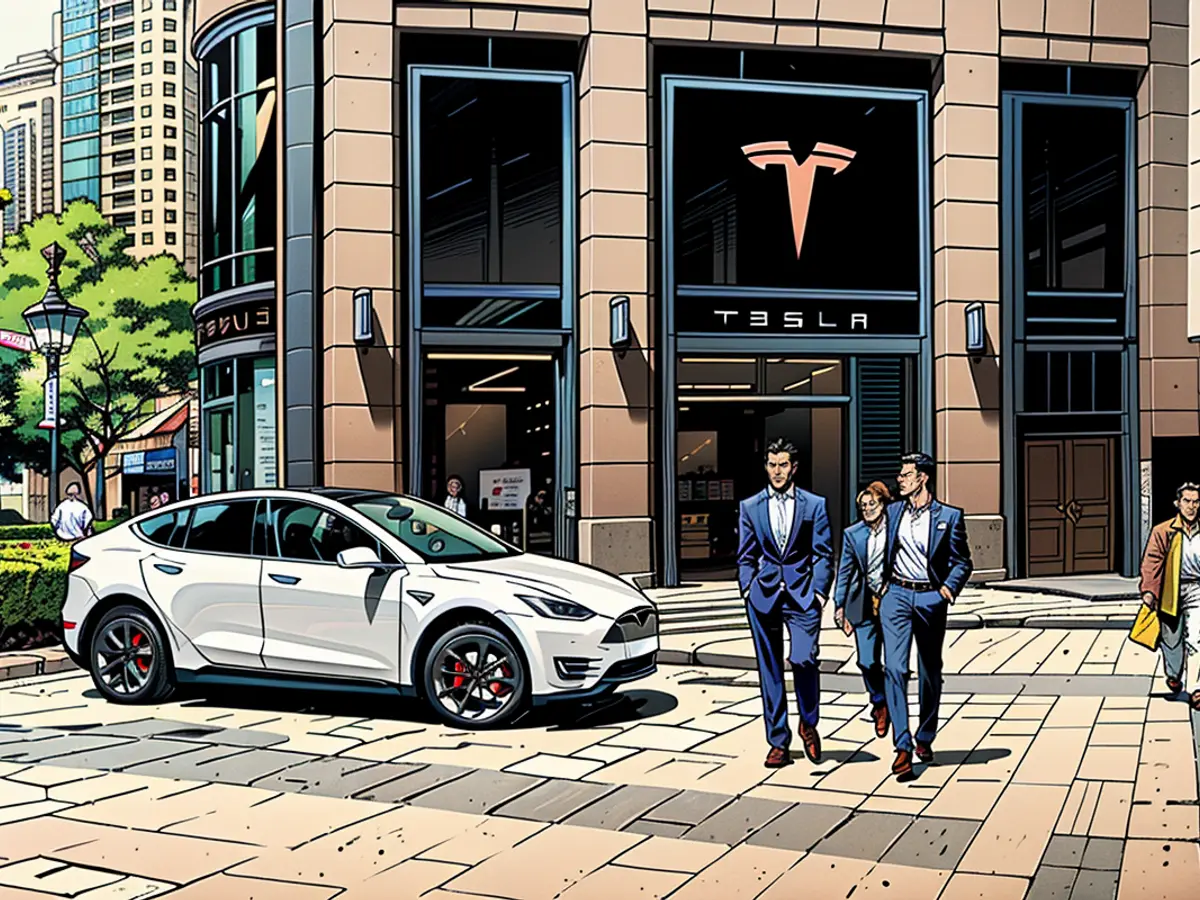Tesla overcomes another obstacle in introducing complete autonomous driving in China.
The Chinese tech company Baidu announced on Saturday that it is now providing lane-level navigation services for Tesla cars. Baidu claims this level of navigation will give drivers better, more detailed information, like recommending lanes before turns, to improve safety.
During Tesla CEO Elon Musk's visit to China in late April, it was said that his main challenge in getting government approval to release the company's FSD software was striking a deal with Baidu for mapping and navigation.
Baidu stated in a release that their updated lane-level maps will allow Tesla's navigation to accurately show lane changes on the current road instead of just providing basic road-level guidance.
Baidu has provided mapping services to Tesla since 2020, but their previous offerings were limited to road-level information - not as precise as lane-level navigation.
One day before, Tesla rolled out a new software upgrade in urban areas of China, boasting the availability of this more detailed road information for the first time.
CNN attempted to contact Tesla for their thoughts on the matter, but Baidu did not offer any additional comment on Monday.
Most Teslas have a driver-assistance system known as Autopilot, while the more sophisticated FSD feature comes at a higher cost. Autopilot is available in China, but not the full FSD version.
Working with Baidu would help Tesla overcome the challenge of obtaining Chinese mapping qualifications for Self Driving Systems, as the Chinese firm holds the necessary licenses.
Under Chinese regulations, all self-driving systems must have these credentials before they can function on public roads. Foreign car companies need to work with licensed Chinese companies for surveying and mapping.
By partnering with Baidu, Tesla would be able to operate its full self-driving system on Chinese public roads, allowing its vehicles to gather surrounding data, such as road layout, traffic signs, and buildings.
This collaboration could also speed up Tesla's development of self-driving tech on a global scale, as data from China could be used for training algorithms needed for fully autonomous vehicles.
Many Tesla owners have been vocal about the company's previous navigation services, provided by Baidu, complaining that they often need to use other maps available on smartphones while driving.
In their Friday announcement, Tesla promised, "This time, you can really take off your mobile phone holders (mounted in the car)." Implying drivers won't need other maps for navigation anymore.
The announcement made waves on Chinese social media on Monday.
"After the system upgrade, I no longer need to use my mobile phone to navigate," remarked one Weibo user. "Tesla's (own) navigation system can finally be used."


Read also:
Tesla's partnership with Baidu in China could also help enhance its business in the tech sector, as the collaboration could speed up the development of self-driving tech on a global scale.
The Chinese tech company Baidu's lane-level navigation services for Tesla cars could potentially open up new tech business opportunities, as Tesla's vehicles would be able to gather more precise data for training autonomous driving algorithms.








